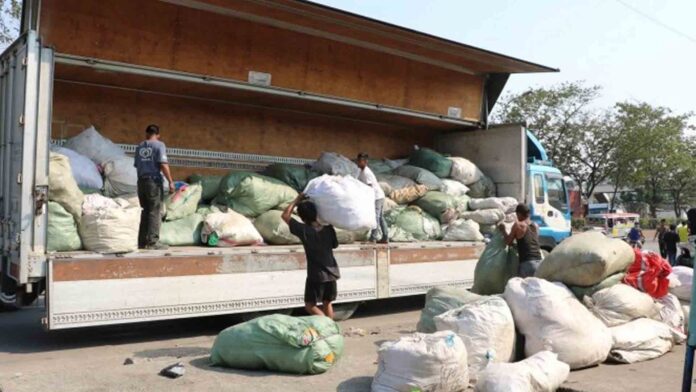The Department of Environment and Natural Resources (DENR) is urging households nationwide to segregate waste to help the country meet its greenhouse gas (GHG) emission reduction target under the Paris Agreement on climate change.
Practicing segregation will enable households to recover waste for composting, DENR Climate Change Information and Technical Support Division chief Albert Magalang said Friday.
“Without waste segregation, composting won’t be successful,” Magalang said during the Ang Tinig Klima program that tackled the Philippines’ Nationally Determined Contribution (NDC) to help meet the Paris Agreement’s global goal of avoiding the onslaught of climate change.
Composting is an age-old method of making fertilizer using decomposed organic matter.
Among the compostable waste are fruit and vegetable peelings, leftover food, and fish and animal entrails, according to the National Solid Waste Management Commission.
Experts said composting puts such waste to good use and significantly reduces the methane emission of decomposing organic matter.
Methane is among the GHGs that are increasingly accumulating in the atmosphere, making global temperatures rise and changing the climate.
The Philippines’ NDC has set a 75 percent GHG emission reduction and avoidance target by 2030 in the country’s agriculture, waste, industry, transport, and energy sectors.
Aside from using public funds, the government will seek foreign funding assistance for implementing the NDC.
Magalang said the DENR hopes foreign sources could help fund the provision of high-tech composting facilities in the country to boost GHG emission reduction nationwide.
“To be successful, however, households must contribute to such reduction bid by segregating waste,” he said.
Widespread public support for the NDC’s implementation, he said, would show the country’s seriousness in helping address climate change.
The Philippines has committed to reducing its GHG emissions despite not being a major source of these discharges, as climate change is threatening survival on Earth.
Experts have already warned that the Philippines is among the countries most vulnerable to and at high risk for climate change impacts.
These impacts on the Philippines are increasing weather events, as well as sea levels and temperatures, they said. (PNA)






